Now up as Week 48’s entry in the 2010 Boards.ie Cooking Club
In Ireland, we don’t do Barbecue.
I know, we think we do, but we don’t. What we call barbecueing is actually grilling (and what we call grilling is actually broiling). Barbecue is a different animal altogether to virtually anything we do in Irish cooking, and I don’t think I’ve ever even seen proper barbecue on a menu anywhere in the country, let alone being done regularly by people at home. The closest we get is making bacon from pork by cold smoking it. Barbecue is like that, only with hot smoke and it cooks rather than preserves the meat. It originated in the caribbean as a way to cook very tough cuts of goat, and migrated to the US where it’s become something of a religion.
Unfortunately for me, I live in an apartment. So while I know of a good way to build a barbecue pit using a flower pot and an electric hot plate (thank you Alton Brown), I’ve no room to make it. However, there is one traditional barbecue dish that I can fake using a slow cooker: Pulled Pork. Which, again, we don’t really have anything like in Ireland. The closest dish I can think of to it is a sloppy joe, and we don’t seem to do those here either (think hamburger, but with mince soup rather than a firm mince patty). So think of this as a sandwich filling par excellence. It takes a while to cook – this is a three-day-dish – but 99% of that time is just waiting, there’s very little actual work involved here. And it’ll keep in fridge for a week or so – I’m not sure how long exactly because it’s never lasted that long whenever I’ve made it 😀
So to start, a quick philosophical point – barbecue is defined by being poor people food. Same as chilli. Same as osso bucco. Same as coq au vin. Same, in fact, as all the great dishes of all the world’s cuisines (with the exception of some of the fancier Indian curries perhaps, because of the amount of spices they used). In the US where this dish was invented and perfected, it’s cooked in a barbecue pit and they use whole pork shoulders (with the bone in) as their main ingredient, and they’re easy to source because the dish is so popular. Here, if you ask a butcher for Boston Butt, you’re going to get a funny look (the name, by the way, has some fairly murky origins, but the best guess seems to be that the shoulders were preserved – in pre-refrigeration days – in barrels of brine; hence butt, as in barrel, and boston, as in the place). In the great tradition of poor people food therefore, we adapt. In Ireland, Tesco readily sell boned pork leg cuts for a reasonable price, and they have almost as much connective tissue as the shoulder (very important – more on that later), so we’ll use one of those:
1.2 kg is about right for this recipe, but you don’t have to be too exact. If you go over 1.5 though, you’ll probably need more rub, more liquid and more room in your cooker.
Actually, on the cooker point, some Irish homes now have these for stews and… well, stews. They’re certainly not something I grew up with, so forgive a quick tangential digression. The slow cooker was originally designed in the US to cook beans, a process that needs a long cooking time at a low cooking temperature, which was easy enough when cooking on a campfire (just put your dutch oven – and that’s a topic for another day – a ways from the fire and leave it there all night), but the modern convection oven doesn’t do sub-100C temperatures in a very stable fashion, they’re designed for the 160-220C range really. So the slow cooker (or crock pot as the original was called) was invented. It’s a simple device – a heavy ceramic pot that sits into a holder that has an electrical heating element built into it. It will take whatever liquid is inside it to just under 100C, but won’t ever let it boil, meaning that you can start it off and ignore it for very long periods of time. It’s designed to run unattended all day or all night without being a hazard. It can’t brown meat, of course – it never gets hot enough for that – but it can do some very nice things to any dish that wants long, low, slow cooking (hence the name). Best of all, they’re cheap. The one I’m using here is the cheapest model Argos had available, a 1.5 litre capacity model selling for €15:
Ignore the pricetag. I know it costs less than some whisks, but this is one of those things where it really doesn’t cost that much to get a good model. For a start, this is small. It’s perfect for one or two people; families may want a 2.5L-3L model, but more than that is just silly. It’s not complex – the switch only needs three of those four settings (off, low and high). And the holder doesn’t need to be very strong structurally, that’s what the pot is for.
Okay, so so far that’s a cuisine we just don’t do in Ireland, using a cut of meat we normally eschew in Ireland, and a cooking vessel that we rarely use in Ireland. Do I get a prize for esoteric choices? 😀
Now, this is a three-day dish as I mentioned earlier. On the first day, we trim the meat and we slap a dry spice rub on it and leave it sit in the fridge overnight to marinate. On the second day, we prep a cooking liquid and put the meat in the pot and start cooking; and on the third day, we pull the cooked meat from the pot, pull it, sauce it and serve it. So I’m going to take those three phases in order. To start, the rub:
Ingredients:
- 3 tsp Paprika
- 2 tsp Salt (NOT table salt, because the iodine in it will stain the pork blue…)
- 1 tsp Onion granules
- 1 tsp Chilli powder
- 2 tsp Cumin
- 1 tsp Smoked Paprika (if you can’t find this, just use another tbsp of Paprika)
- 1/2 tsp Garam Marsala (or just curry powder…)
- 1/2 tsp Cayanne Pepper
Mix all of these together. You don’t *have* to use a mortar and pestle…
Now, take the pork out of the package and put it on your meat chopping board:
Remove the net or twine holding it in shape:
That big surrounding layer of white fat has to go, along with the pigskin on top of it. This next bit is by turns icky, slimy, squishy, messy and bristly if the pig wasn’t fully shaved, like this one (so try not to enjoy it too much). You need to just grab a corner and pull the skin away from the flesh, like so:
Then take your knife and run it down the join between the bottom of the fat layer and the start of the flesh
This is what you see when you do it right – a little fat left on the outside of the muscle, but no muscle damage. Be careful with your cuts however, or you wind up hacking the meat up like this:
It’s not that it’s actually harmful, it’s just that you waste some meat doing that, and why kill a pig if you won’t use the meat? Anyway, when you’re done, you should have this:
Discard the skin (I can’t think of anything you can use it for, but if you do, let me know!) and move the meat off the board for a second to a plate or other holding spot and get out your cling film, and lay a sheet of it over half the board and leave a good few inches off the ends of the board, like so:
And then do it again on the other half of the board, with an overlap with the first sheet of cling film of 3-4 inches:
And now sprinkle some of the rub on the centre of the cling film and put the meat on top of that:
Now, sprinkle this with a good dose of the rub:
And when fully covered, pat it into place:
Continue to do this for all sides making sure to work the rub into all the nooks and crannies of the meat, until you have something like this:
Now, bring up the edges of the sheets of cling film, and wrap and seal tightly:
And just for insurance, put it in a zip-loc bag (or a tupperware container) and rest overnight in the fridge:
And that’s day one. Total work time here is usually less than 20 minutes even at a leisurely pace.
On day two, we prepare our cooking liquid and start the cooking of the pork.
Ingredients:
- The pork (well, d’uh…)
- 1 cup Coke (not diet, please, and not Pepsi either, but if you like root beer or some other wierd cola, try that)
- 1/2 cup Cider Vinegar
- 1 tsp Nam Pla
- 1 tsp Worstershire Sauce
- 1 tbsp Black Strap Molasses (or normal molasses, or in a dire pinch, honey – but it won’t be the same…)
- 1 tsp Thyme
- 1 tsp Coriander (dried is fine, squishy tube stuff is fine too)
- 1 whole mild chilli (just wash, do not chop or cut)
- 4-5 cloves of Garlic, peeled but not smashed or chopped
- 1 Onion, diced
So, to start, we dice the onion and peel the garlic, and then we add all three to the slow cooker to form a layer on the bottom for the meat to rest on:
Then in a mixing bowl, we add all of the other ingredients, and then whisk to combine:
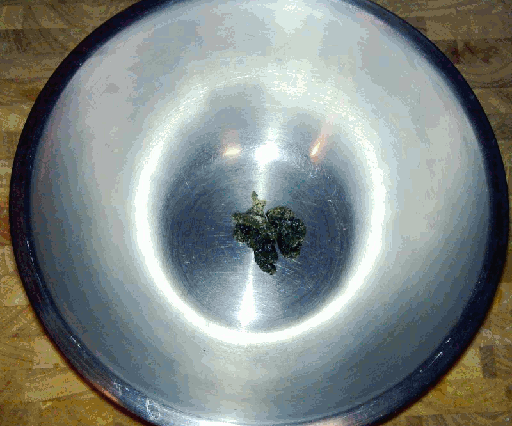
Once this is done, we add the meat to the slow cooker on top of the aromatics:
BTW, it will look very red (that’s okay, it’s just the paprika) and wet (that’s just protein-laden water drawn out by the salt and mixing with the dry rub to form a basic marinade). That’s all fine. Now that the meat’s in the pot (and you may need to wedge it in there), pour the cooking liquid over the top:
You may need to use tongs to squidge the meat around inside the slow cooker, so that when the lid then goes on, the meat doesn’t touch the lid:
And now we set this puppy to high and leave it alone:
…and that’s the end of day two – total work time 10-15 minutes. We need to leave this to cook now for a minimum of eight hours – and preferably overnight. The point of this is that long slow cooking at the low temperatures in the slow cooker will convert the collagen in the connective tissue into gelatin, and this is why pulled pork tastes so tender and has such a great mouth feel – it’s basicly become meat covered in jelly. That’s why shoulder is normally used as well, on the pig, the shoulder does the most work and has the most connective tissue and therefore produces the most gelatin. Leg’s not quite as good, but it does reasonably well (and it’s easy to source – but if you can find shoulder, use it – and if you can leave the bone in, do that as well). Don’t use something like pork fillet – it just goes tough and isn’t as good to eat:(
On day three, we pull the pork and sauce it.
Okay, so it’s the next day and it looks done; but is it? The test is simple – grab the meat with the tongs and twist. If it comes away with very little to zero force, it’s done. If it feels like meat, it’s not and needs more time.
In our case, it comes way without force so we take the meat from the cooking liquid and put it on a board, and we discard the cooking liquid and its various solids.
Just before we pull it, we’ve one last thing to do – look at the meat and find any large bits of fat on it and remove them:
And once the fat is removed, do the same for any remaining membrane type connective tissue:
Now that those icky bits are removed, it’s time to pull the pork. “Pull”, in this case, refers to shredding the pork with the two forks by pulling the meat apart using them. The meat will mostly fall apart almost on its own at this point, but you want to tear it down by holding a chunk in place with one fork and dragging the points of the other fork across the meat. It doesn’t take too long, but make sure you don’t have any really large chunks of meat left unshredded at the end. You want something that looks like this:
Now this is fine as is, and this is what “pulled pork” generally means in the US, but I find that if the fibres are this long, they always get stuck in my teeth and that sucks, so I very roughly chop the meat, just the once:
Cuts about 1.5 to 2 inches apart, and go through it from left to right and from front to back, one time each way, and that’s the meat ready. Now, we just need to sauce it (test the meat now, and it’ll be tasty and nice, but when sauced, it becomes something even better). There are three basic kinds of sauce used for pulled pork: there’s the North Carolina style where the sauce is very thin and based on vinegar; there’s the South Carolina style where the sauce is thicker and based on tomatoes; and there’s this style, where the sauce is based on something bought in a shop 😀
So clean out the slow cooker and we’ll make up the sauce.
Ingredients:
- 1 cup of your favorite shop-bought barbecue sauce (or a cup of your favorite home-made, either’s good)
- 1/2 cup of Cider Vinegar
- 1 tsp of coriander (the squeezy tube stuff is probably the best here)
- 1 tsp of garlic (again, the squeezy tube stuff is very good here, you’d have to smash and finely dice and cook off raw garlic)
- 1/2 tsp of ginger (squeezy tube again)
Combine all of those in the slow cooker (it helps if the slow cooker is still hot here) and whisk thoroughly. Now dump in all the pork:
And fold one into the other until well combined:
And that’s it. Leave it in there for ten minutes or so, so that it all warms through (warm meat and cold sauce wouldn’t be so great), and then take a bap or a hamburger bun, put a heaped tablespoon or two on the bread and a tablespoon of coleslaw on top of that (and maybe a little more BBQ sauce) and you have yourself one of the best sandwiches made by man.
Or, scatter some on top of a pizza (along with some more BBQ sauce) and you have a very, very, very moreish pizza.
It’ll keep in the fridge for longer than it will last (or about a week to ten days if you lock the fridge) in a sealed tupperware container.
Enjoy!
Tags: recipe
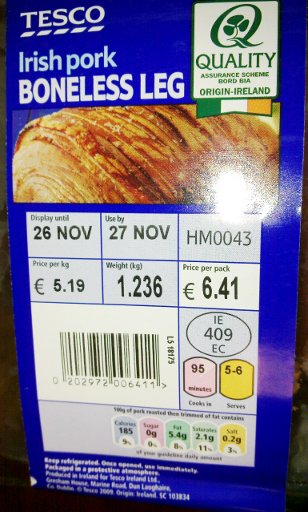
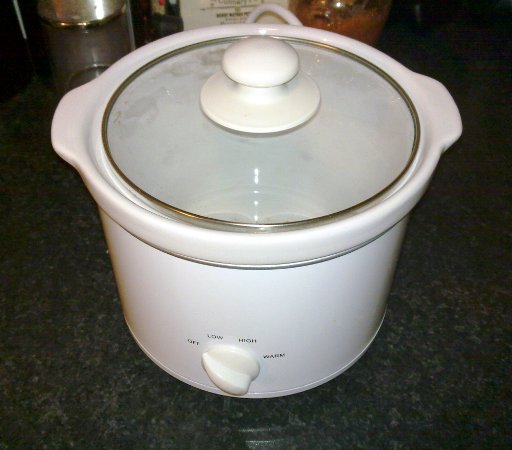
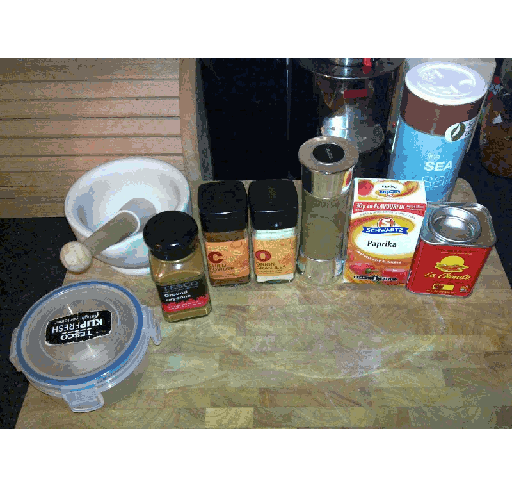
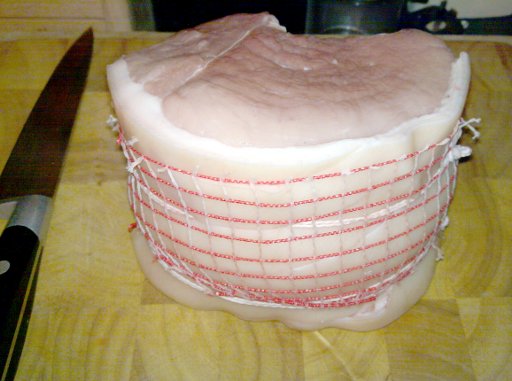
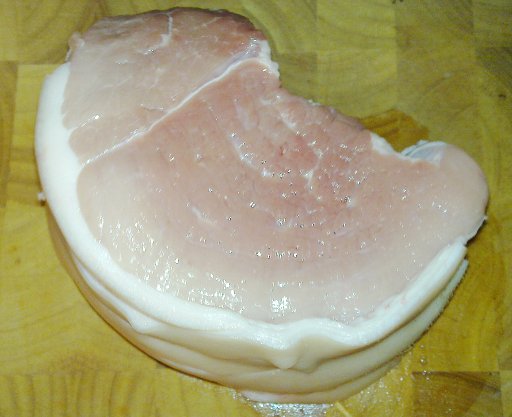
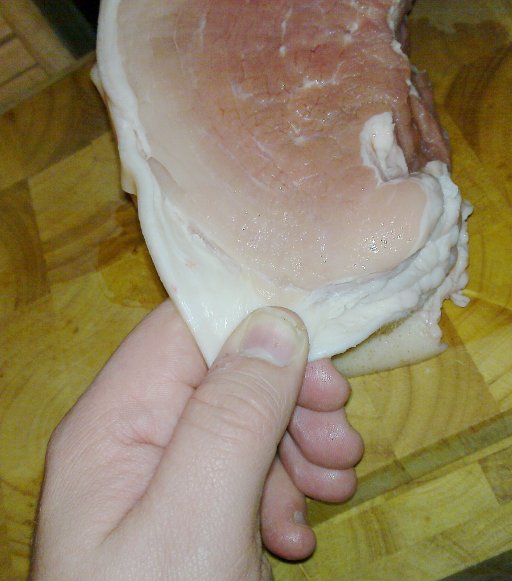
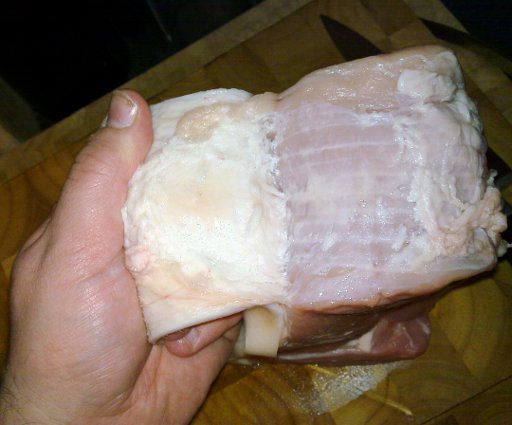
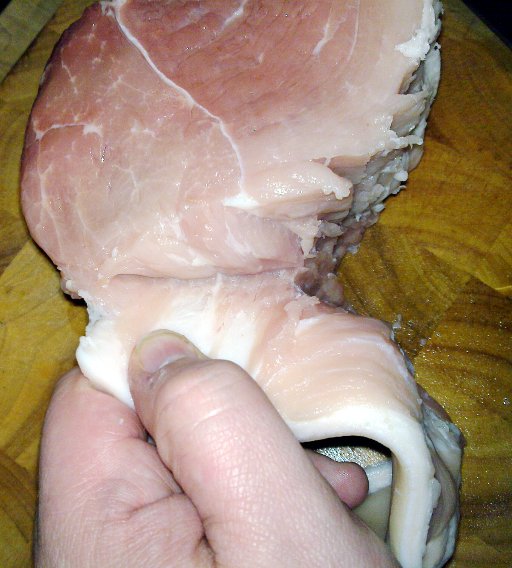
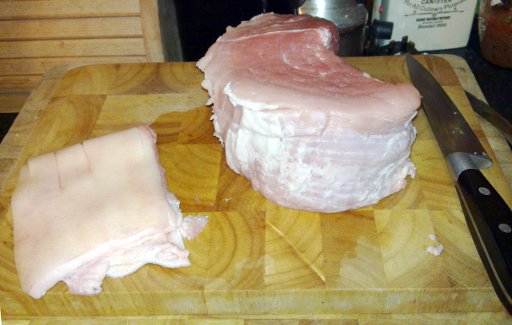
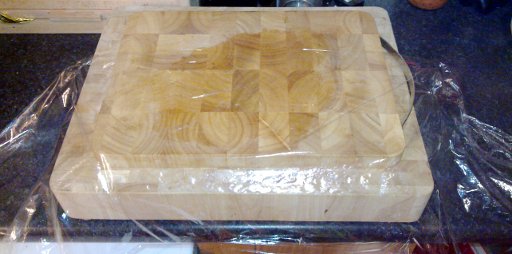
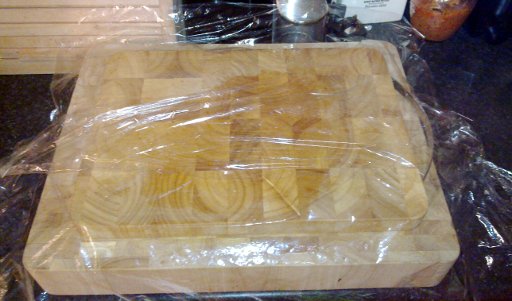
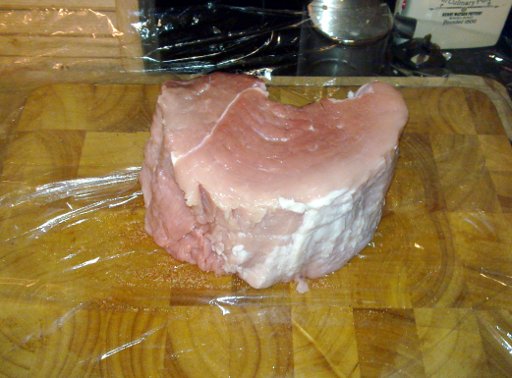
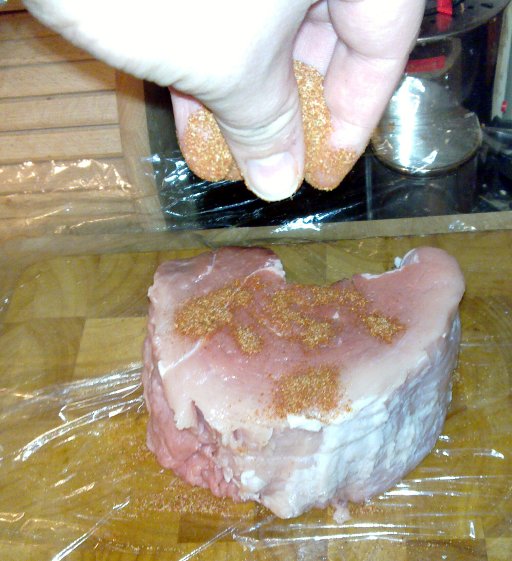
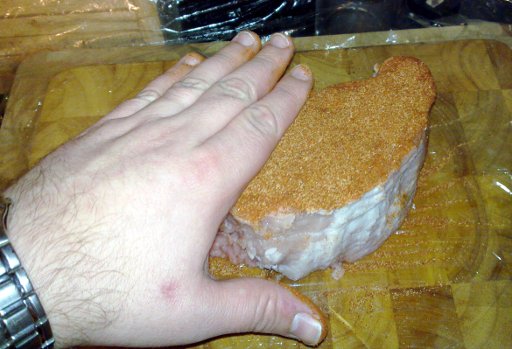
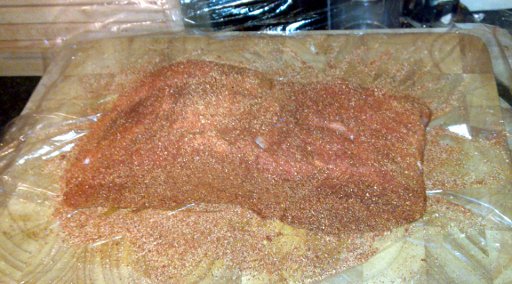
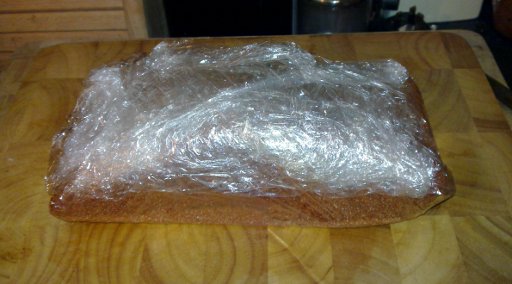
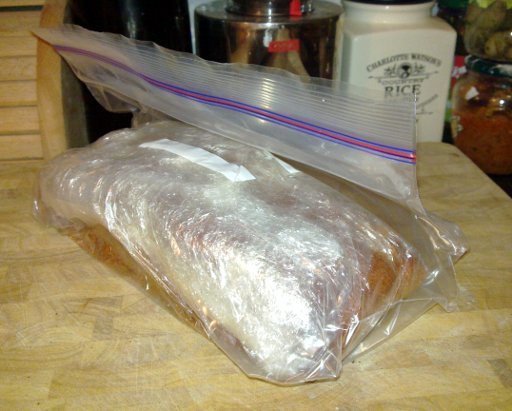
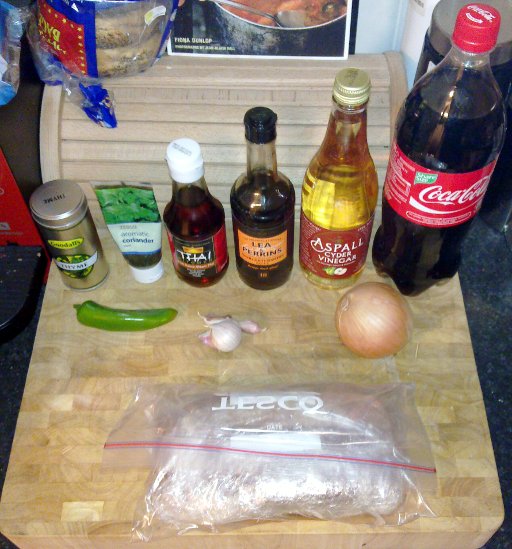
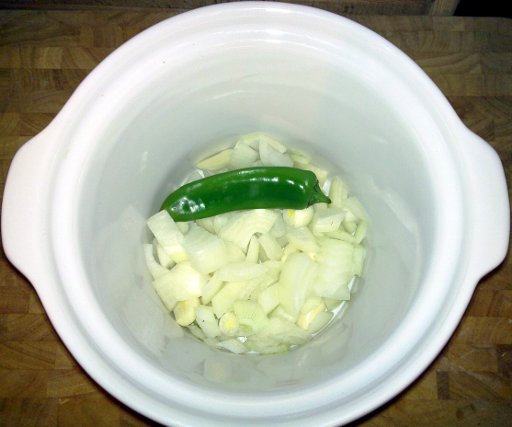
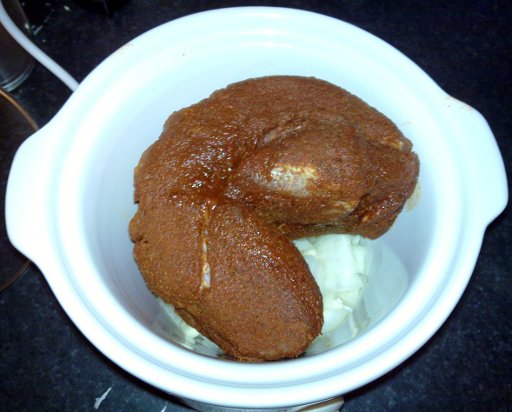
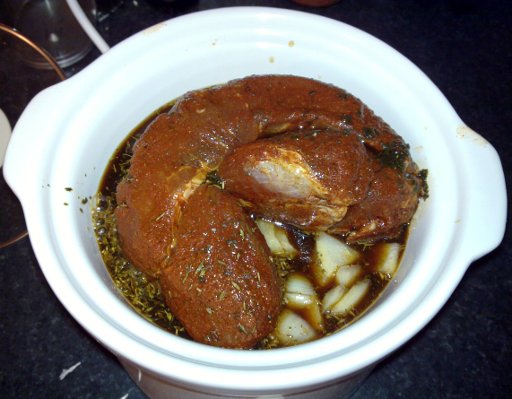
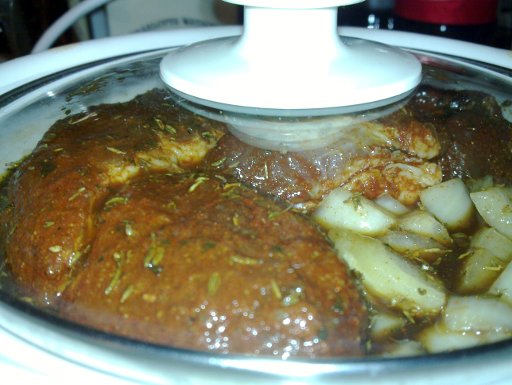

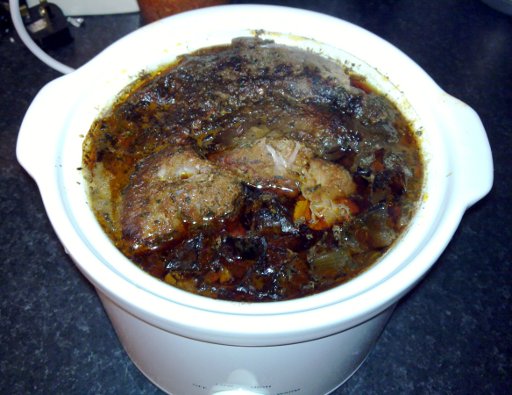
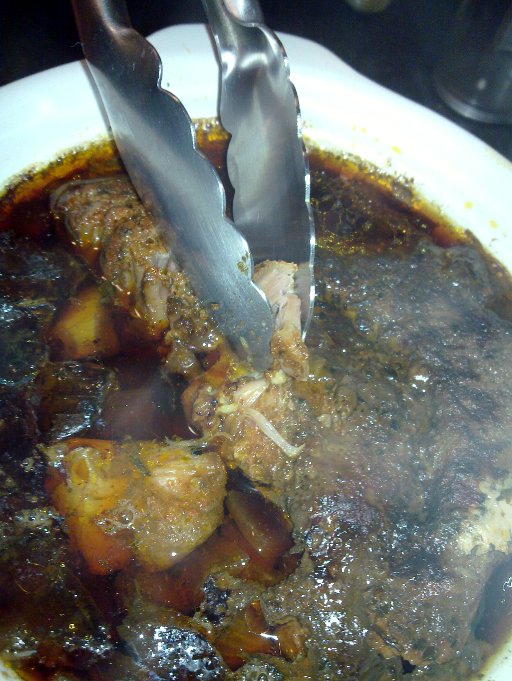
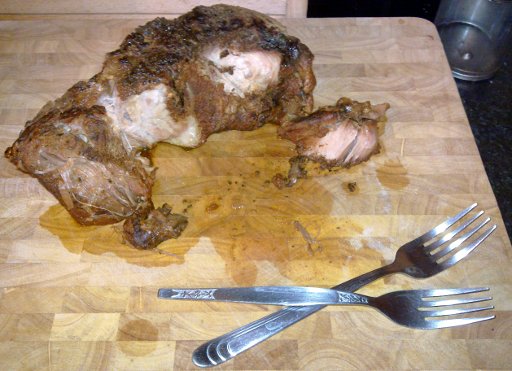
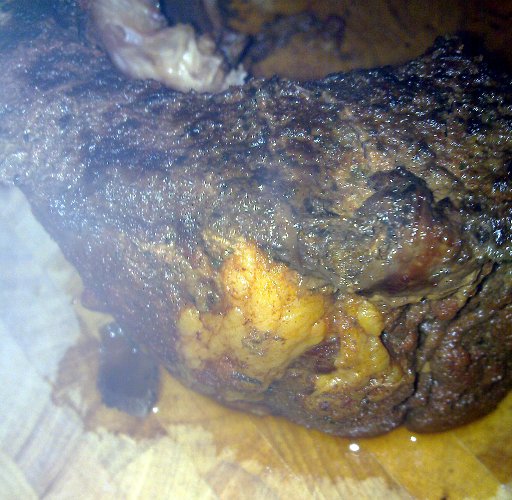
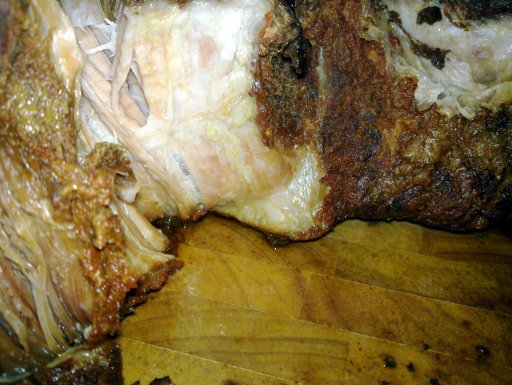
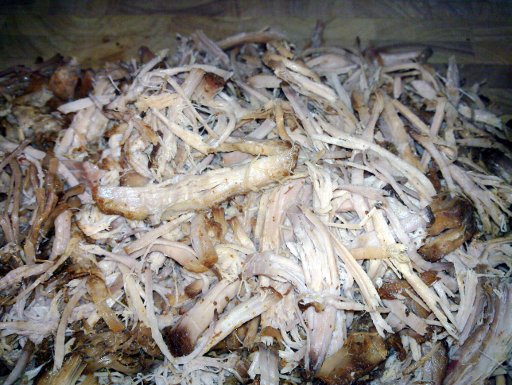
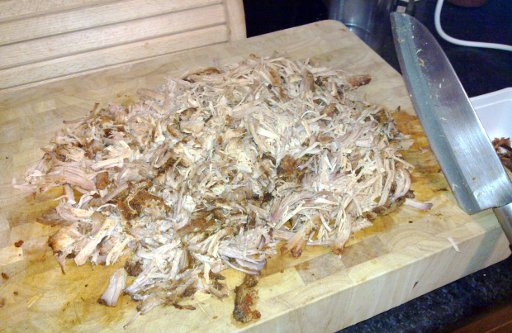
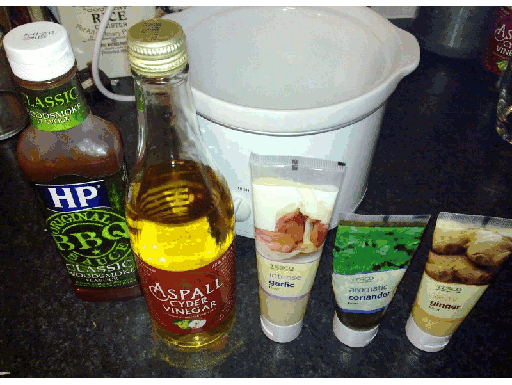
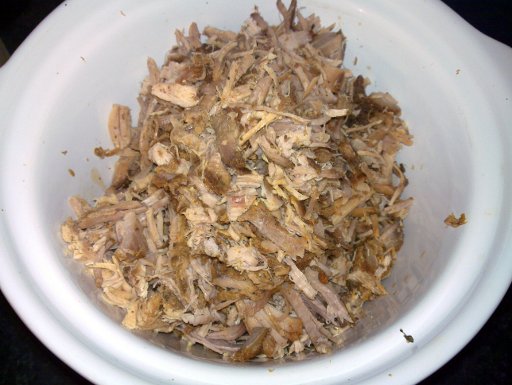
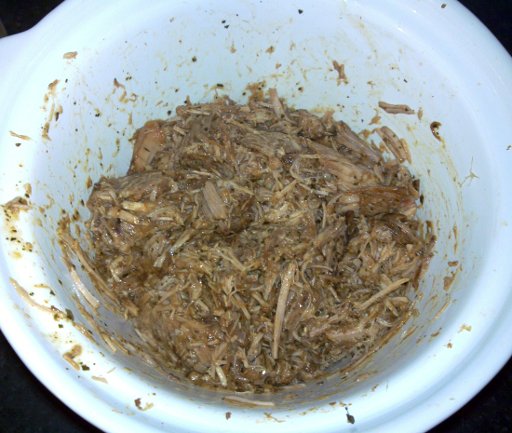


Thanks Mark, you’ve made me decide to venture into the snow tomorrow to get pork and a slow cooker!
[…] This post was mentioned on Twitter by Mark Dennehy, Irish LinuxUG. Irish LinuxUG said: Mark Dennehy: Pulled Pork http://dlvr.it/9TLCl […]
Beautiful. Going to give that a go at the weekend, methinks.
You can smoke a shoulder cut on a weber grill, takes along time but its worth it. You buy wood chips online ask your butcher for the right cut. I walked through the process with mine and showed him pictures of a boston butt. He knew what I was looking for and was a great help. If you have a grill do not cook the cut over direct heat, also you can get some great tips online for great tasting rubs, see Pit boys on youtube and here is a handy video if you ever feel like smoking pulled pork https://www.youtube.com/watch?v=4omNfZ_6WYs. PS If your ever in dublin there are lots of places that offer many classics like pulled pork and brisket. Check out Pitt Bros, just wing it or bisons. Sorry about the bad spelling.
There are loads of places that offer pulled pork and other BBQ now… there wasn’t when I wrote this four years ago 😀
(This recipe goes up on boards.ie’s cooking club and 40,000 readers later pulled pork is the latest fashion. Hmmmmmmmm… 😀 )
14 years later and I still don’t have a BBQ pit 😀